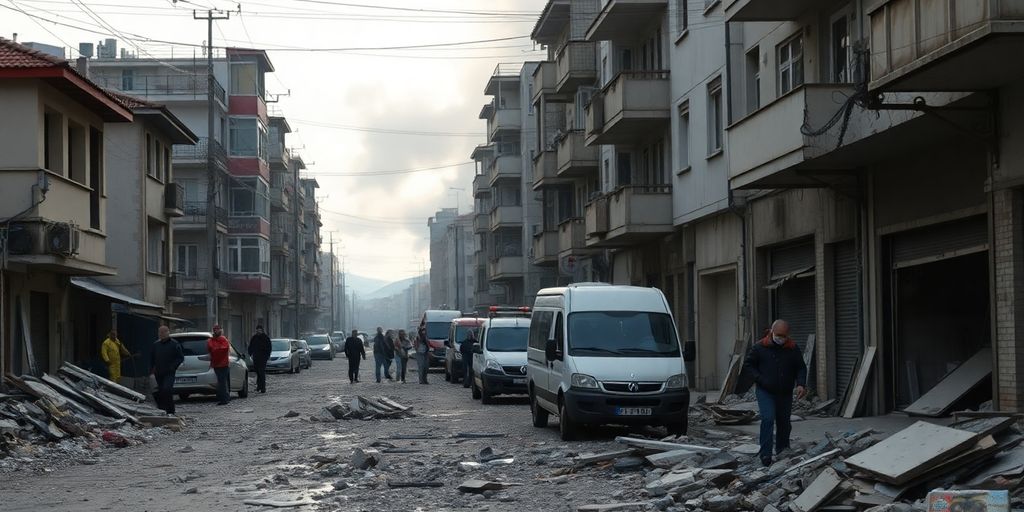A powerful explosion in Kosovo has severely disrupted water and power supplies, leading to the arrest of eight individuals. The incident, which occurred in Vrage, has raised tensions in the region, with accusations directed at Serbian-backed groups.
Key Takeaways
- A blast in Vrage damaged critical infrastructure, affecting water and power supplies.
- Eight arrests have been made in connection with the explosion.
- Prime Minister Albin Kurti blames Serbian-backed groups for the attack.
- The incident follows previous explosions targeting police and local authority buildings.
- International condemnation has been swift, with calls for accountability.
Incident Overview
On Friday, a significant explosion occurred in Vrage, located approximately 60 kilometers north of Pristina, Kosovo’s capital. The blast damaged a water canal, leading to temporary disruptions in water and power supplies across several cities. Prime Minister Albin Kurti reported that the explosion utilized about 15 to 20 kilograms of explosives, severely impacting critical infrastructure.
Arrests Made
In the aftermath of the explosion, Kosovo police detained eight individuals suspected of involvement in the attack. Interior Minister Xhelal Svecla confirmed the arrests, stating that a substantial cache of weapons, ammunition, military uniforms, and cash was confiscated from ten locations in northern Kosovo. This operation highlights ongoing concerns regarding security and criminal activities in the region.
Political Tensions
Prime Minister Kurti has accused Serbian officials, particularly Milan Radoičić, of orchestrating the attack. Radoičić, a politician with close ties to Serbia’s ruling party, has been previously charged in connection with violent incidents in Kosovo. Kurti’s accusations have been met with criticism from Serbian officials, who claim that such allegations are unfounded and serve to escalate tensions.
International Response
The explosion has drawn strong condemnation from both the European Union and the United States. EU foreign policy chief Josep Borrell described the act as a "despicable sabotage" of Kosovo’s civilian infrastructure, urging all parties to cooperate with local authorities. The U.S. Embassy in Pristina echoed these sentiments, emphasizing that violent actions have no place in a democratic society and calling for accountability for those responsible.
Historical Context
The incident occurs against a backdrop of strained relations between Kosovo and Serbia, which have been fraught with tension since Kosovo declared independence in 2008. Despite international efforts to normalize relations, incidents like this explosion highlight the fragile state of peace in the region. NATO-led peacekeepers, known as KFOR, have increased their presence in Kosovo to ensure security, particularly around critical infrastructure.
Conclusion
The blast in Vrage not only disrupted essential services but also reignited political tensions in an already volatile region. As investigations continue and arrests are made, the international community remains vigilant, urging both Kosovo and Serbia to engage in constructive dialogue to prevent further escalation of violence. The situation underscores the ongoing challenges in achieving lasting peace and stability in the Balkans.






